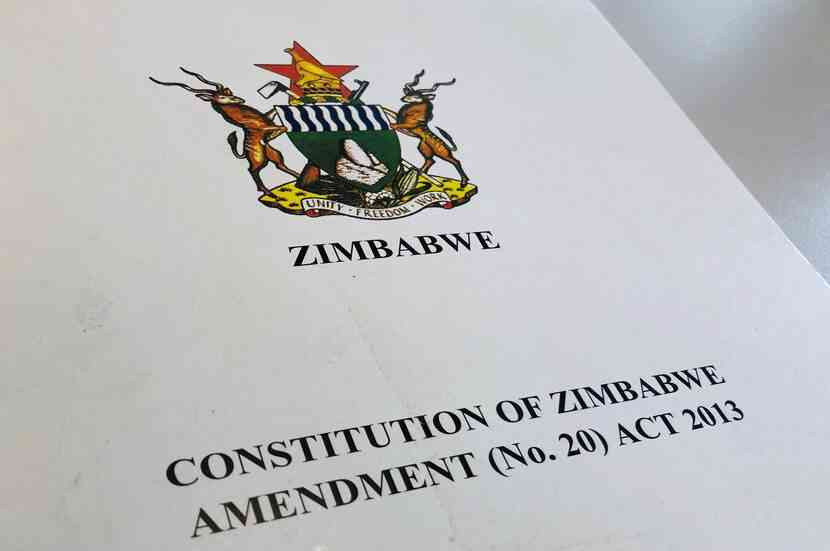
Zimbabwe is grappling with a profound economic crisis marked by escalating wage inequality and a significant decline in worker protections, a predicament many experts attribute to the pervasive influence of neoliberal economic policies, which simultaneously exacerbate a severe brain drain impacting the nation's vital human capital.
Recent data compellingly reveals a concerning trajectory: union density has plummeted, the statutory minimum wage consistently fails to keep pace with the hyper-inflated cost of living, and the chasm between the highest and lowest earners continues to widen dramatically across the country, leading observers to question if these harrowing trends are direct consequences of policies that overtly prioritise market forces over essential worker safeguards.
Rooted in a philosophy emphasising deregulation, privatisation, and unfettered free markets, neoliberalism has indeed been a dominant force in global economics for several decades, and while its proponents frequently assert that it fosters efficiency and robust growth, critics vehemently contend that it primarily exacerbates inequality by systematically weakening the crucial institutions meticulously designed to protect workers.
Tendai Maposa, a prominent economist, asserts that "the evidence is mounting that Zimbabwe is falling victim to this pattern," further arguing that "we're witnessing a deliberate dismantling of the power of unions and a systematic erosion of the real value of the minimum wage, all under the guise of creating a 'competitive' market."
Moreover, the unrelenting forces of globalisation are unsympathetically affecting Zimbabwe's economy through a severe brain drain, as the increasingly competitive and open global labor market allows countries that have not contributed to Zimbabwe's human capital development to actively profit from it, with developed nations such as the United Kingdom, Canada, and Australia facing immense pressure to recruit skilled manpower from Africa, particularly in the education and health sectors, making Zimbabwe unfortunately one of the top targeted countries on the continent, alongside South Africa and Nigeria.
A significant manifestation of this economic shift is the steady decline in union density across Zimbabwe over the past two decades, meaning the percentage of workers belonging to a union has progressively diminished, consequently weakening their collective bargaining power and leaving individual workers increasingly vulnerable to exploitation while becoming significantly less able to negotiate for fair wages and equitable working conditions.
Echoing this concern, Johnson Mugabe, a seasoned trade union leader, emphatically argues that "unions are the only real counterweight to the power of employers, and when unions are weak, employers gain free rein to suppress wages and maximise profits at the expense of their workers," highlighting the critical role unions play in labor protection.
Compounding these challenges, the statutory minimum wage in Zimbabwe has drawn widespread criticism for being woefully inadequate to meet the basic needs of workers, and while the government does periodically announce increases, these adjustments consistently fail to keep pace with rampant inflation and the relentlessly rising cost of essential goods and services, thereby leaving a substantial portion of the workforce in a perpetual struggle to make ends meet and inevitably widening the already alarming wage gap.
- Mavhunga puts DeMbare into Chibuku quarterfinals
- Bulls to charge into Zimbabwe gold stocks
- Ndiraya concerned as goals dry up
- Letters: How solar power is transforming African farms
Keep Reading
The combined effect of weakened unions and an insufficient minimum wage has consequently contributed to a stark increase in wage inequality, where the wealthiest Zimbabweans continue to accumulate considerable wealth, while the working class grapples with stagnant or even declining real wages, a disparity that inherently breeds social unrest and ultimately undermines the nation's fragile stability.
Furthermore, the environment for trade unionism and effective collective bargaining has become increasingly challenging in recent years, as the government has consistently adopted a firm stance against industrial action, particularly within critical sectors such as health and education, where strikes by teachers, nurses, and doctors over poor wages and dismal working conditions have frequently been met with heavy responses.
Proponents of neoliberalism frequently advance the argument that unions and minimum wages distort the natural functioning of the market, leading to undesirable outcomes such as increased unemployment and even greater inequality, claiming that artificially raising the price of labour through these mechanisms invariably reduces demand and consequently forces some workers into lower-paying jobs or outright unemployment.
However, critics strongly contend that this neoclassical model fundamentally fails to account for the real-world dynamics of power imbalances and systemic exploitation inherent in unregulated markets
Moreover, Zimbabwe continues to grapple with severe and entrenched economic instability, a harsh reality that directly and profoundly impacts the purchasing power of the working class, as hyperinflation remains a persistent and formidable threat, with year-on-year inflation figures frequently reaching triple digits, even though official reporting has undergone various re-basings in recent years.
As formal employment opportunities continue to shrink and nominal wages within the formal sector remain abysmally low, a vast and ever-increasing number of Zimbabweans have been compelled to resort to the informal economy, a sector that, while providing a crucial means of survival for millions, offers virtually no labor protections, minimum wage guarantees, social security, or health benefits.
This widespread proliferation of "gig" work and informal trade further erodes the overall bargaining power of workers across the entire economy and deeply entrenches inequality, thereby creating a substantial "precariat" – an emerging social class characterized by perpetually insecure employment and precarious living conditions, exacerbating the broader challenges faced by the Zimbabwean workforce.
In essence, the constellation of recent economic and political developments in Zimbabwe has not only validated but significantly intensified the profound concerns previously raised regarding the decline of union influence, the persistent inadequacy of wages, and the relentlessly widening wealth gap, thereby creating an increasingly difficult terrain for workers to effectively advocate for their fundamental rights and for the nation to genuinely achieve equitable and sustainable economic growth.
The persistent economic instability and an undeniably challenging political climate, further underscores these vulnerabilities, making Maposa's warning about the "dangerous myth" of efficient markets appear even more starkly exposed in Zimbabwe's current reality, where the glaring absence of robust labour protections and meaningful collective bargaining continues to leave the majority of its citizens precariously vulnerable within a perpetually volatile economic landscape.
As Zimbabwe continues to grapple with the escalating crisis of wage inequality and its severe societal repercussions, calls for a fundamental shift away from prevailing neoliberal policies are growing demonstrably louder among advocacy groups and economists.
Many increasingly advocate for the urgent strengthening of unions, the immediate raising of the minimum wage to a truly living wage, and the implementation of progressive tax policies designed to redistribute wealth more equitably across all segments of society.
The future trajectory of Zimbabwe's economy and social fabric hinges critically on whether the government can effectively address this growing crisis of wage inequality and decisively forge a more just and equitable society for all its citizens, leaving the compelling question: will Zimbabwe persist down the well-trodden path of neoliberalism, or will it courageously forge a new path that unequivocally prioritises the well-being and prosperity of its hardworking people?.
*Nyawo is a development practitioner, writer and public speaker.
These weekly articles published are coordinated by LovemoreKadenge, an independent consultant, managing consultant of Zawale Consultants (Private) Limited, past president of the Zimbabwe Economics Society and past president of the Chartered Governance & Accountancy Institute in Zimbabwe in Zimbabwe. Email – [email protected] or Mobile No. 263 772 382 852











